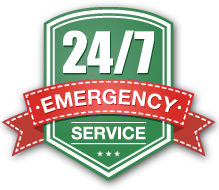
It’s not the “cleanest” topic, but if you have a one, learning the best ideas in avoiding a septic tank nightmare is very important.
With twenty five percent of homes in the U.S. having a septic tank, chances are good you’ve had one in your lifetime (or know someone who has). For homeowners that are on the municipal sewage system, the city is responsible for the maintenance and repairs of that system. However, those that own homes with septic tanks are personally responsible for the upkeep, and cleanup, should there be a problem. So, it is important to understand how septic systems work and how to keep them running effectively.
How a Septic Tank Works
Any waste that goes down any drain in your home will travel through traditional piping away from the home to the septic tank. Solid waste falls to the bottom where it will break down and deteriorate over time. Liquid waste travels past the septic tank and is released into a drainage field (the area around the septic tank). The liquid waste is absorbed into the ground (microbes in the septic tank remove most contaminants before this even happens) where it undergoes a natural purification process.
Occasionally, solid objects can cause clogs in septic tanks. Or they can overflow if waste has not broken down fast enough. Both of these situations could be a costly nightmare for the homeowner. No one wants a backyard full of muck! Luckily, we have some ways to help avoid this.
How to Maintain a Septic Tank
As with any part of the home a septic tank needs routine maintenance to function properly. Here are some steps to take to ensure that:
- Have the septic tank inspected and pumped every 3-5 years (depending on the size of the home and number of people living in it).
- Be VERY mindful about what you put down your drain. This is important in any home but especially in those with septic tanks. Avoid putting sanitary products, wet wipes, plastic/rubber, anything that won’t break down easily or is toxic.
- Try and reduce usage of the garbage disposal. Scrape excess food/scraps into the trash.
- Use soaps and cleansers that are environmentally friendly. Bleach and harsh chemicals should be used very sparingly.
As always, our Albuquerque Plumbing technicians are here to assist with any leaks or clogs that your drains may have in your home.



